In December 2017, the United Nations Environment Programme (UN Environment) and the Roundtable on Sustainable Palm Oil (RSPO) signed a small-scale funding agreement (SSFA) to support oil palm smallholder farmers towards improved livelihoods and sustainable production.
Over the course of the past year, many successful activities have been conducted both in Sabah, Malaysia and Seruyan, Central Kalimantan, Indonesia.
Seruyan
Under the SSFA project, Inovasi Bumi (INOBU), has helped to establish the first Agricultural Facility (AF) in Seruyan. The AF, established on 19 February 2018 with a commitment from local grower companies, provides direct support and training capacity to smallholders in Seruyan, including: Serving as a training academy to build the knowledge and capacity of smallholders on Good Agricultural Practices (GAPs) and other key principles of sustainable agriculture Providing access to agricultural inputs including seeds, fertilisers and a nursery Developing partnerships with local and regional financial communities to build a mechanism for the extension of low-interest loans for smallholders
To date, the AF has helped to train 100 participants – including smallholders and extension officers – on GAPs, and developed training curricula to be used in future trainings at the AF. These 100 participants will become trainers and train another 1,000 smallholders, with support from the AF (e.g., facilities, training curriculum).
Sabah
In Sabah, Forever Sabah (FS) has established village committees in 4 districts: Telupid, Tongod, Beluran and Kinabatangan. Twenty villages were chosen from the 4 districts and the smallholders were educated about oil palm certification and its benefits. A report on smallholders’ readiness for RSPO certification was published in June 2018, highlighting the main barriers preventing them from achieving certification, such as a lack of financial management skills, poor agricultural practices, and legality issues.
FS is currently organising training for smallholders with the help from local mills. Smallholders are trained on GAPs, as well as on pricing and grading mechanisms. This set of training is part of the FS intervention model which will be completed in January 2019.
Regarding legality issues, FS conducted a comprehensive assessment on the ground to understand the unique land challenges that smallholders face. Models to address these issues have been created to help smallholders complete their pending land application process, and these models will be tabled at the Jurisdictional Certification Steering Group (JCSC) before implementation in February 2019.
Ongoing process of knowledge exchange
During 8-10 November 2018, 20 participants (comprised of smallholders and the AF officers) from Seruyan flew over to Sabah for a knowledge exchange activity. The 3-days activity enabled smallholders to share their experiences about how the project has benefited them and changed their farming practices.
Some key takeaways from the knowledge exchange: Both groups of smallholders share similar problems: financial management and GAPs However, the Seruyan smallholders are more exposed to GAPs compared to the Sabah smallholders All smallholders have benefited from the project, in terms of getting more knowledge on how they can improve their yield and their farming practices.
The second knowledge exchange will be conducted in Seruyan in February 2019 and will involve the local government to share insights on their role in achieving Jurisdictional Certification.
For more information on this project, kindly contact Dillon Sarim at [email protected].
Keep reading

Open Letter to COP30 President: Integrating Forests and Biodiversity: A Policy Central to Paris Agreement Success
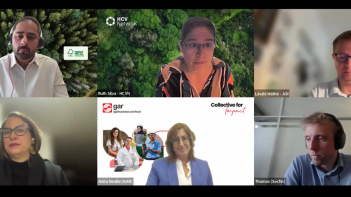
Bridging the Auditing Divide: Key Takeaways from the RSPO Assurance Forum 11
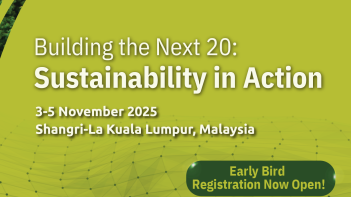
Good News: RT2025 Early Bird Registration Extended!
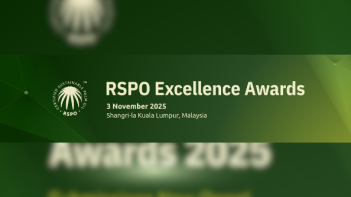
Extension of RSPO Excellence Awards 2025 Submission Deadline!
Call for Expression of Interest: Ghana National Interpretation Task Force for 2024 RSPO Principles and Criteria (RSPO P&C)
Call for Expression of Interest: Côte D’Ivoire National Interpretation Task Force for 2024 RSPO Principles and Criteria (RSPO P&C) and Independent Smallholder (ISH) Standard
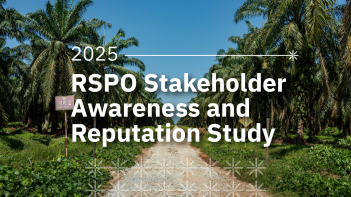
RSPO Gains Global Recognition in 2025 Stakeholder Study
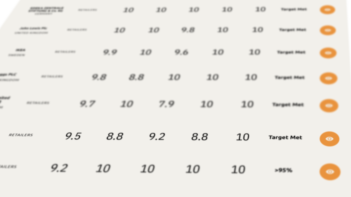
Top 9 Retailers In Europe Committing To Sustainable Palm Oil





